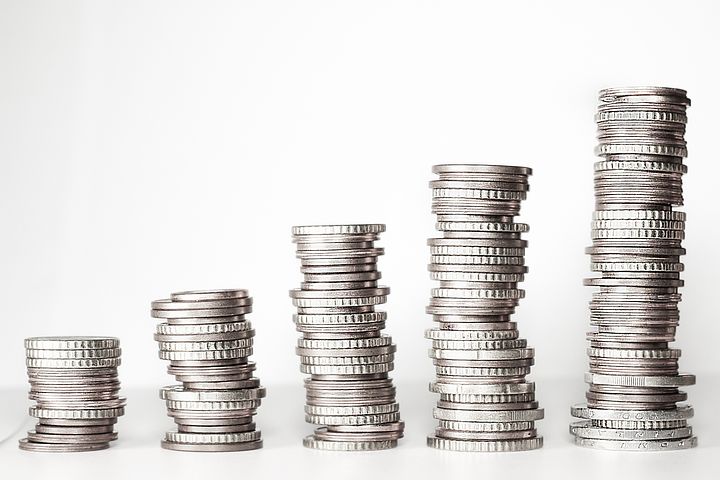A Consumption Tax Doesn’t Work For US
Recently, the Republican Party has introduced efforts to drastically upheave the American tax system. These moves, however, could put the country on the wrong track.
A consumption tax sounds effective in theory, but it would hit lower class families much harder than everyone else.
January 20, 2023
On Jan. 9, Representative Earl Carter (R-GA-1) introduced the “Fair Tax Act” to the House Committee on Ways and Means, which aims to solve the country’s tax problems in a direct way: abolishing the Internal Revenue Service and moving from an income tax to a consumption tax. On the surface, the bill has merits: it eliminates millions in spending on the IRS, a department which received an $80 billion appropriation from President Biden’s Inflation Reduction Act. Additionally, an abolition of the income tax would hopefully incentivize workers to earn more salary, as they would not see large portions of their paychecks taken away. Coupled with that, the consumption tax would, in theory, encourage individuals and families to save more, as their savings would not be subject to taxation. If these effects were realized, the increased productivity from workers and reduced needs from consumers would provide a kickstart to the economy, and large amounts of money would be freed up in the federal budget.
Unfortunately, none of that will ever happen. While the idea seems original and fiscally responsible, its theorized effects could never come true, and in actuality, the bill would likely contribute to widening income inequality in the United States.
The most glaring problem with the bill is its regressive nature: since households with less income generally spend more of what they have, a flat consumption tax (23% proposed rate in 2025) would hit lower and middle class families harder than upper class citizens, as more of their income would end up being taxed in the long run — a direct contradiction to the progressive tax system the US currently employs. By dollar amounts alone, upper class citizens would contribute more in taxes than lower class citizens due to the fact that they consume more, but proportionally, this fails to hold true as income increases. Someone making $1 million would certainly consume more than someone making $50,000, but will they consume 20 times as much? Unless they buy food that is 20 times as nice as a poor man’s food and spend 20 times as much on necessities like insurance, the answer is likely no. As someone makes more money, they can afford to save more of their paycheck, and when these savings are not taxed, their wealth grows.
In fact, lower class families often consume more than wealthy citizens in certain scenarios due to the fact that they have less disposable income. Consider the “boots” theory, famously conceived by author Terry Pratchett. A nice, sturdy pair of boots might cost 50 dollars, but an affordable pair might cost about 10 dollars. However, while those cheap boots will last for a year or two, the expensive boots could last for a decade or more. While the poor man continues to buy the cheapest pair of boots he can find, the rich man makes an investment that costs him less in the long run, keeping him rich.
Simply put, consumption is everything for lower class families. As they live paycheck to paycheck, every dollar they earn goes towards necessities they can barely afford. A consumption tax — especially at the flat rate proposed by the Fair Tax Bill — would cripple them, representing a far greater tax burden than the lowest bracket of federal income tax they currently face. Meanwhile, the people at the top of the economic ladder — the people whose fortunes are directed almost entirely towards savings and stocks — would be relieved of the large payments they currently make towards this country, and they would be hit with a comparatively weak slap on the wrist for the meager consumption they engage in.
Aside from its fundamental problems, the bill is also unwisely optimistic about the simplicity that a new system would create. By proposing to abolish the IRS, it suggests that tax loopholes currently exploited through the income tax system would vanish under a consumption tax. If income can be hidden, though, it does not seem like a stretch to suggest that consumption could be hidden as well. According to the Committee for a Responsible Federal Budget, approximately 13 percent of owed taxes do not get paid due to mistakes, fraud and other causes. Without a department dedicated to fixing these misrepresentations of money spent and earned, these problems would likely worsen; indeed, the CRFB predicts that rescinding IRS funding would add over $100 billion to the federal deficit, calling into question the fiscal responsibility of these measures.
For several reasons, the Fair Tax Act fails to prove itself as fair. By placing a much harsher burden on lower class citizens than wealthy citizens, it threatens to contribute to America’s increasingly concerning wealth gap, and it fails to deliver on its promise of making the taxation process simpler. This radioactive legislation, while predictable when one considers its source, is highly dangerous, and as a nation, we can only hope that it does not come to fruition in the future.



